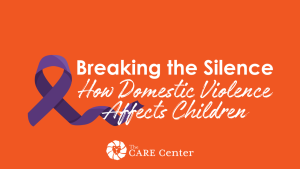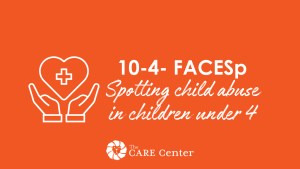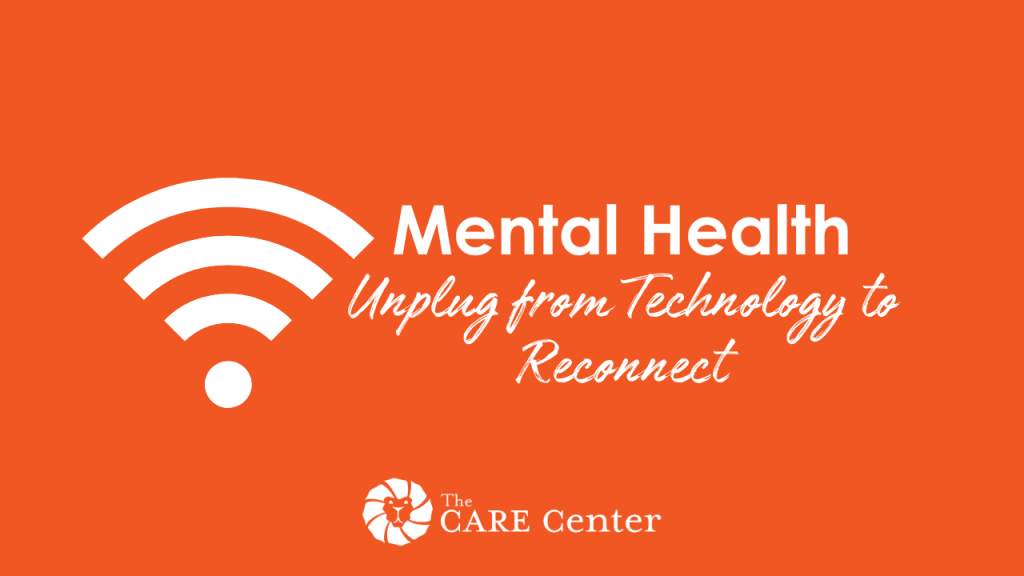
by Hannah Griffis, Director of Mental Health at The CARE Center
Last week, a parent told me, ‘It’s like I’ve lost my child to a screen.’ It’s a sentiment I hear all too often.
As a mental health professional, I’ve witnessed firsthand how our increasingly digital world can quietly chip away at the emotional health and connection children need to thrive.
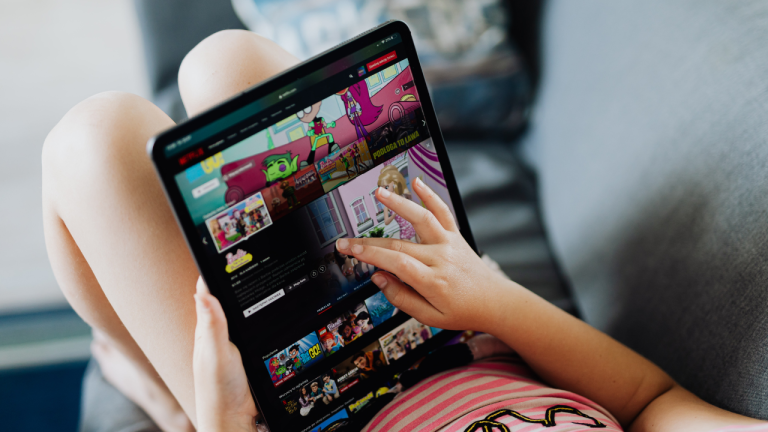
Each May, Mental Health Awareness Month gives us an opportunity to reflect on the emotional and psychological wellbeing of those we love—especially our children. While technology brings convenience and entertainment, it also comes with real risks when it becomes a substitute for human connection, play o communication.
This month, I want to highlight the growing impact of technology on children’s mental health—and more importantly, what we as families can do to counter it. With a little intention and a few creative shifts, we can create stronger bonds and healthier minds by simply spending more quality time together.
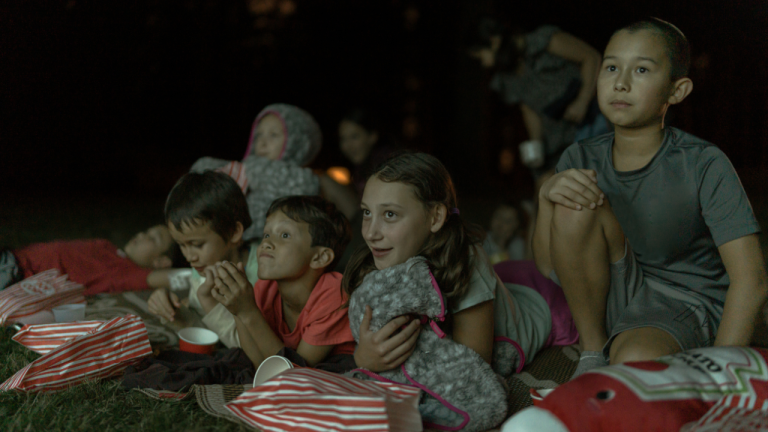
The Digital Dilemma: How Technology Affects Children’s Mental Health
Children are growing up in a world saturated with screens—from tablets to TVs to smartphones. Too much exposure to technology, especially without guidance, can harm development in several key areas:
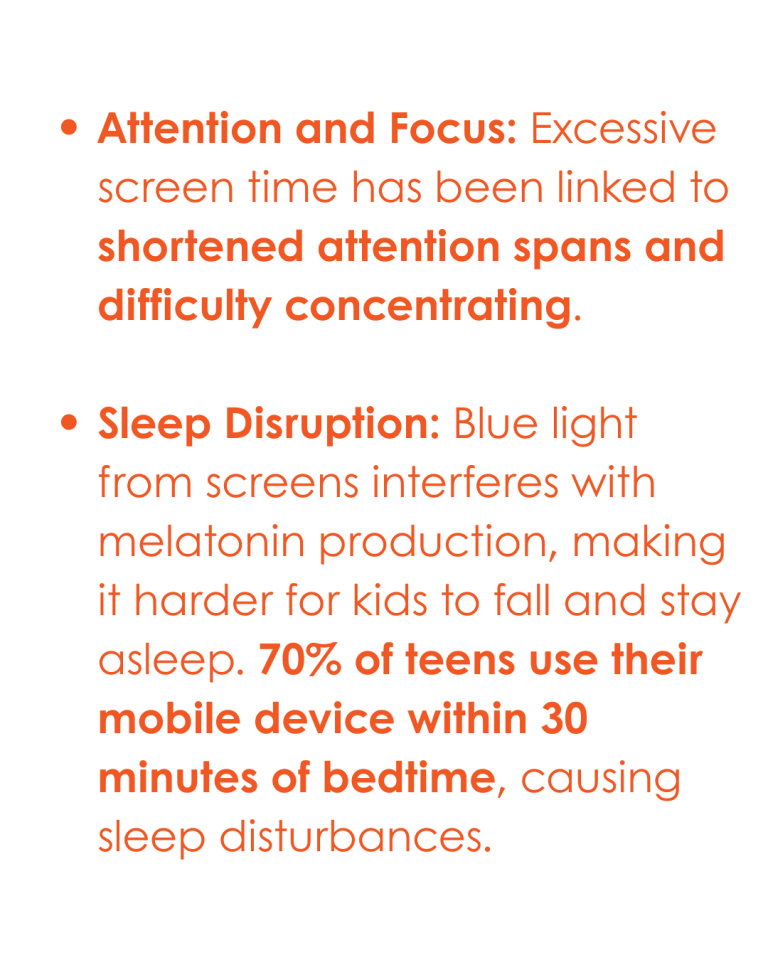
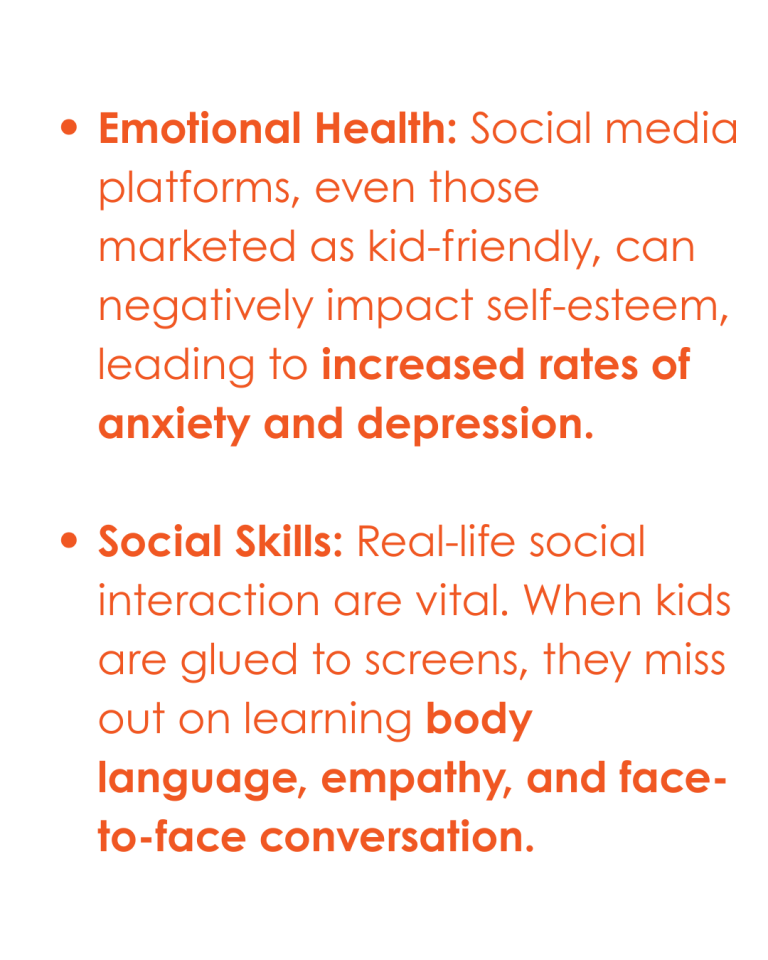
At The CARE Center, we’re seeing younger children experience symptoms of overstimulation, stress, and even burnout—conditions that were once rare in early childhood.
Signs Your Child May Be Overstimulated or Disconnected
As caregivers, it’s crucial to recognize when something might be off. Here are some signs your child might be struggling with tech-related overstimulation:
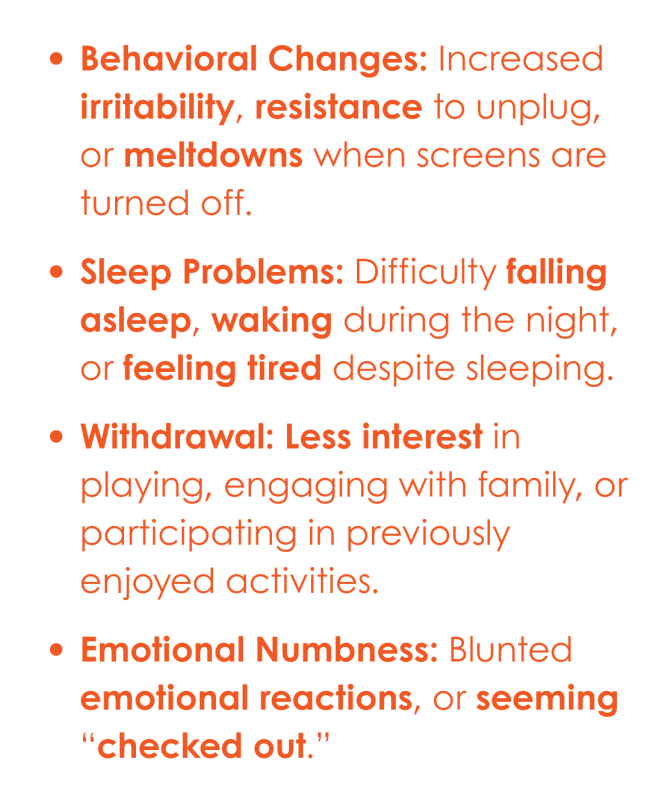
If you’re noticing these signs, it’s not about blame—it’s about getting curious and making room for healthy change. Open, non-judgmental conversations are key.
Unplugged and United – Family Activities That Foster Connection and Growth
Here’s the good news: reducing screen time doesn’t have to mean fighting about devices or cutting out tech entirely. It’s about being intentional with your time and making space for shared, meaningful experiences.
Here are some of my favorite family-friendly activities that support emotional growth and connection:
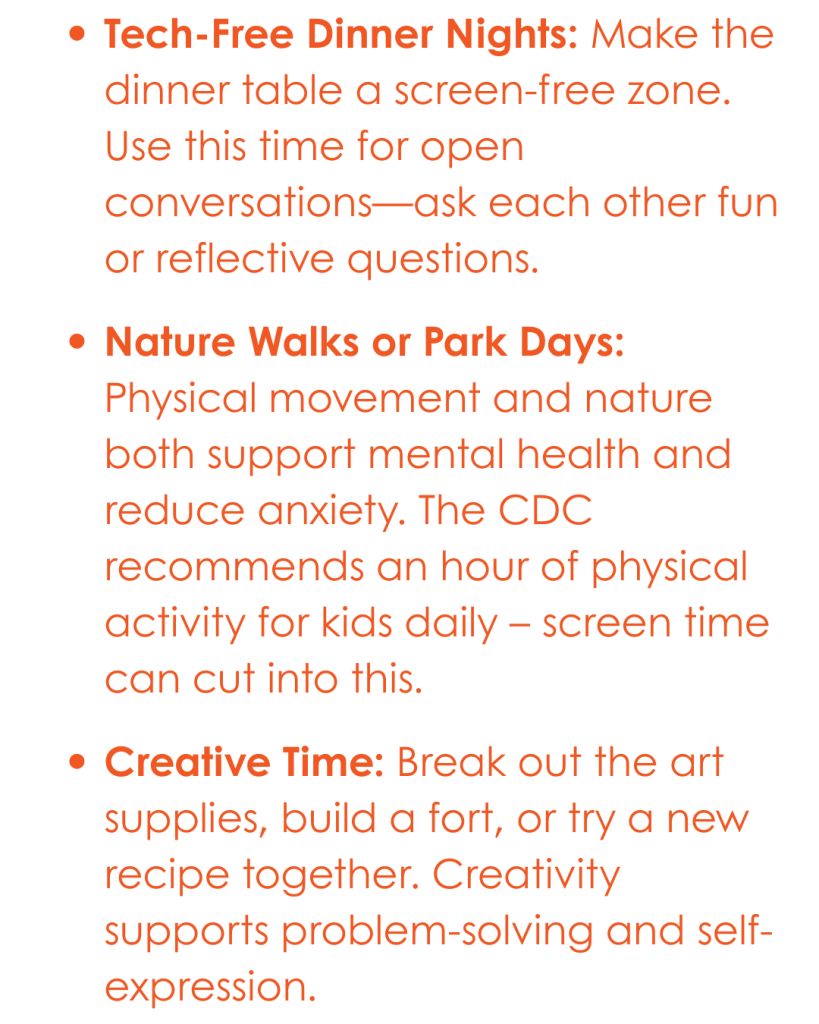
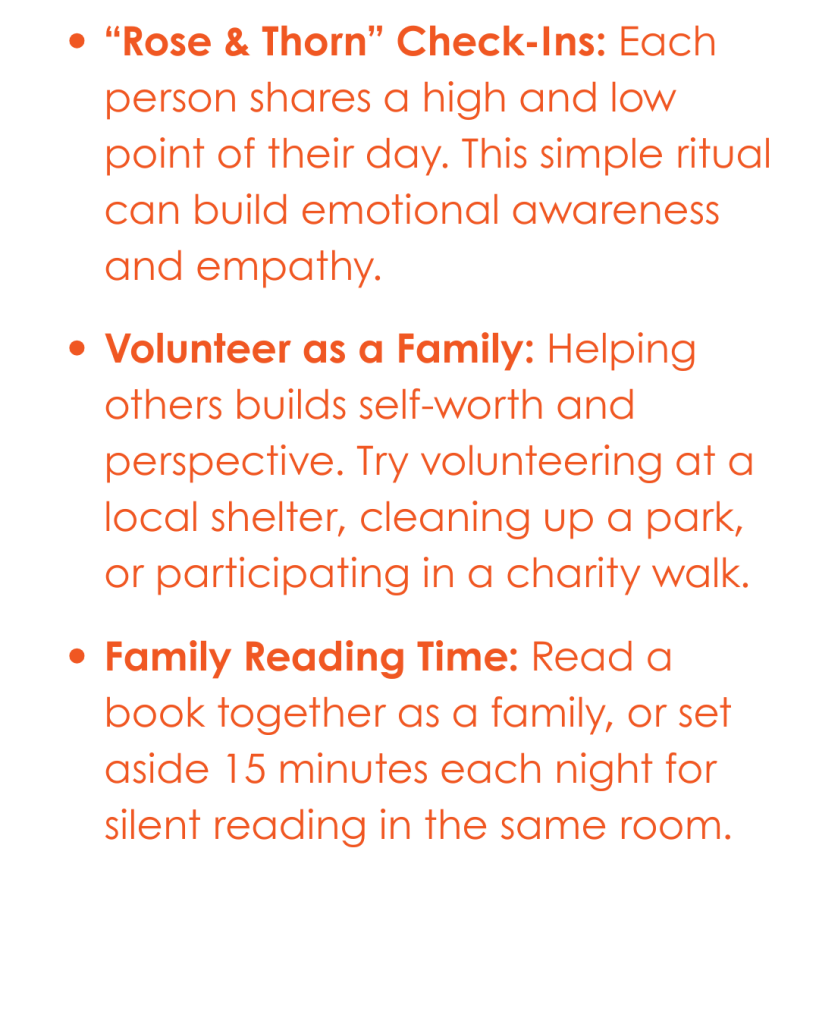
These small actions can have a big impact. You’re not just filling time—you’re building trust, emotional intelligence, and happy memories.
Building a Family Culture That Supports Mental Wellness
The most effective way to create a mentally healthy household is through consistency and compassion. Here are a few long-term habits to consider:
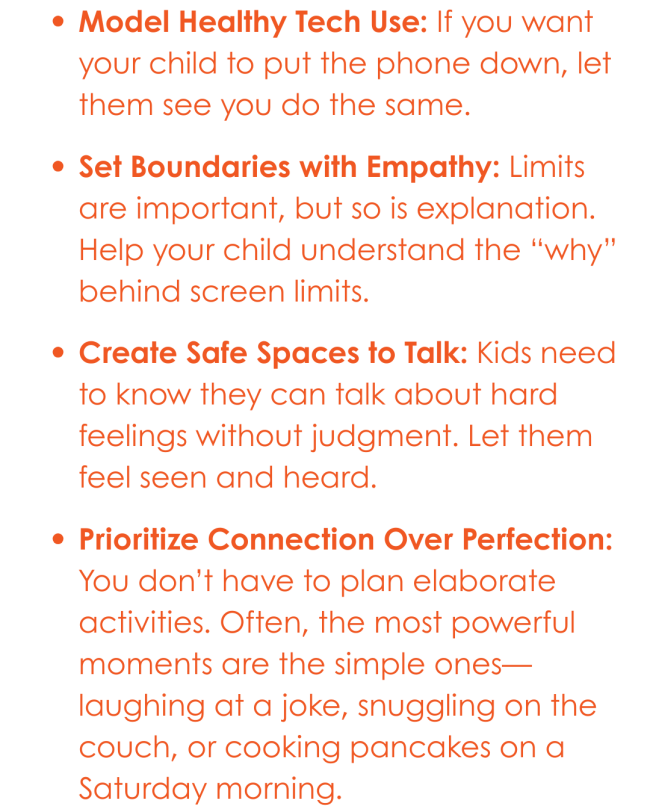
This Mental Health Awareness Month, I encourage families to take a step back and reflect: Are we truly connecting, or are screens getting in the way?
You don’t need to overhaul your entire life. Start small. Commit to one unplugged family night this week. Take a walk together. Ask your child how they’re really feeling. These moments matter—far more than we often realize.
At The Care Center, we’re here to support you with resources and guidance. Let’s work together to raise resilient, emotionally healthy kids—one unplugged moment at a time.
Know a caregiver who could use this? Share this article with them.

Hannah Griffis, M.ED, LPC
Director de Salud Mental



